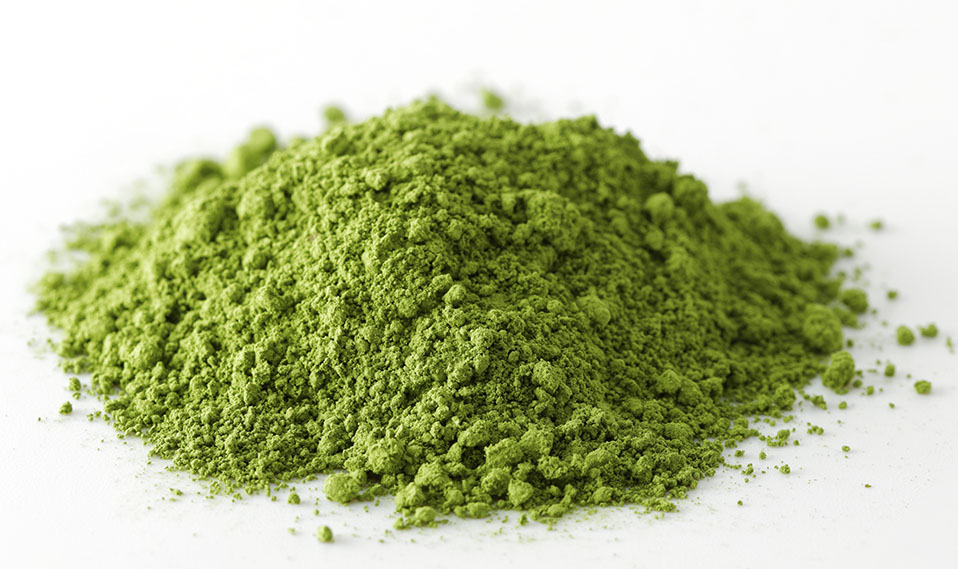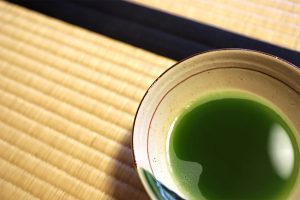MENU
MENU
Benefits of Tea
Benefits of Tea 7 “Vitamins”

Professor Yoriyuki Nakamura of the University of Shizuoka wrote the original article in Japanese, which CHAMART translated into English.
Tea contains a variety of vitamins that help inhibit the formation of lipid peroxide in the human body, preventing cancer and aging inhibition.
Some vitamins, such as vitamins A and E, do not dissolve in the tea infusion. Thus, these vitamins can only be consumed by eating the tea leaves, and not by drinking. Green tea is rich in vitamin C, but black tea is less in vitamin C because vitamin C is broken during the fermentation progresses. High-quality green tea has a high vitamin U content, but hojicha (roasted green tea), oolong tea, and black tea have very little vitamin U.
Vitamin A, which is based on carotene, has antioxidant and cancer preventing effects. Chinese type (Camellia sinensis var. sinensis), tends to have higher vitamin A content than Assam type (Camellia sinensis var. assamica). Carotene decreases at different rates depending on the production method. Carotene is almost not lost in green tea because there is no oxidization process. However, the carotene content decreases in more oxidized teas.
Tea contains a richer Vitamin B complex content compared to other common foods. The well-known types of Vitamin B complex include B1, B2, nicotinic acid, pantothenic acid, folic acid, and biotin. Green tea has more B1 and B2 than black tea and oolong tea. When comparing green teas, tea made from younger leaves tends to contain more B1 and B2.
Deficiency of vitamin B complex causes beriberi, neuritis and stomatitis. The preventive effect of vitamin C against scurvy is well known. Vitamin C also has antioxidant, stress-relieving, and cold-preventing properties. Furthermore, in terms of beauty, it is said that vitamin C provides elasticity to the skin, prevents moisture loss, and inhibits the production of melanin pigment, which can darken the skin. Green tea contains a lot of vitamin C, while oxidized teas contains less. Vitamin E, known as tocopherol, has anti-oxidant and aging inhibition effects. The amount of Vitamin E in tea is greater than in vegetables and fruits, and it is as much as 26 times more than in spinach. However, in order to obtain the benefits of vitamin E, which does not dissolve in hot water it is necessary to consume the tea leaves, such as by drinking matcha or eating the brewed tea leaves.
Green tea contains a lot of vitamin C, while oxidized teas contains less. Vitamin E, known as tocopherol, has anti-oxidant and aging inhibition effects. The amount of Vitamin E in tea is greater than in vegetables and fruits, and it is as much as 26 times more than in spinach. However, in order to obtain the benefits of vitamin E, which does not dissolve in hot water it is necessary to consume the tea leaves, such as by drinking matcha or eating the brewed tea leaves.
Writer’s Profile
Yoriyuki Nakamura
Specially-appointed professor, Director of the Tea Science Center, University of Shizuoka
https://dfns.u-shizuoka-ken.ac.jp/labs/tsc/index.html
Awards and commendations
2016 Awarded as Japanese Tea Industry Achievement Award: Popularization of tea varieties and pot seedling cultivation techniques
2015 Awarded as O-CHA Pioneer Award of academic research section: Tea breeding technology and Variety development
2013 Awarded as Tea Industry Technology Merit Award: Efforts in tea industry technology
2013 Awarded as Sugiyama Hikosaburo Tea Technology Award: Developing tea variety
2013 Awarded as Tea Academic Research Award: Tea breeding and tea propagation technology
Related article on the site:
Benefits of Tea 1 “Tea has long been a powerful elixir with abundant benefits!”
Benefits of Tea 2 “Functional ingredient of Tea”
Benefits of Tea 3 “Major components of tea”
Benefits of Tea 4 “Catechins”
Benefits of Tea 5 “Amino acids”
Benefits of Tea 6 “Caffeine”
Benefits of Tea 7 “Vitamins”
CATEGORY